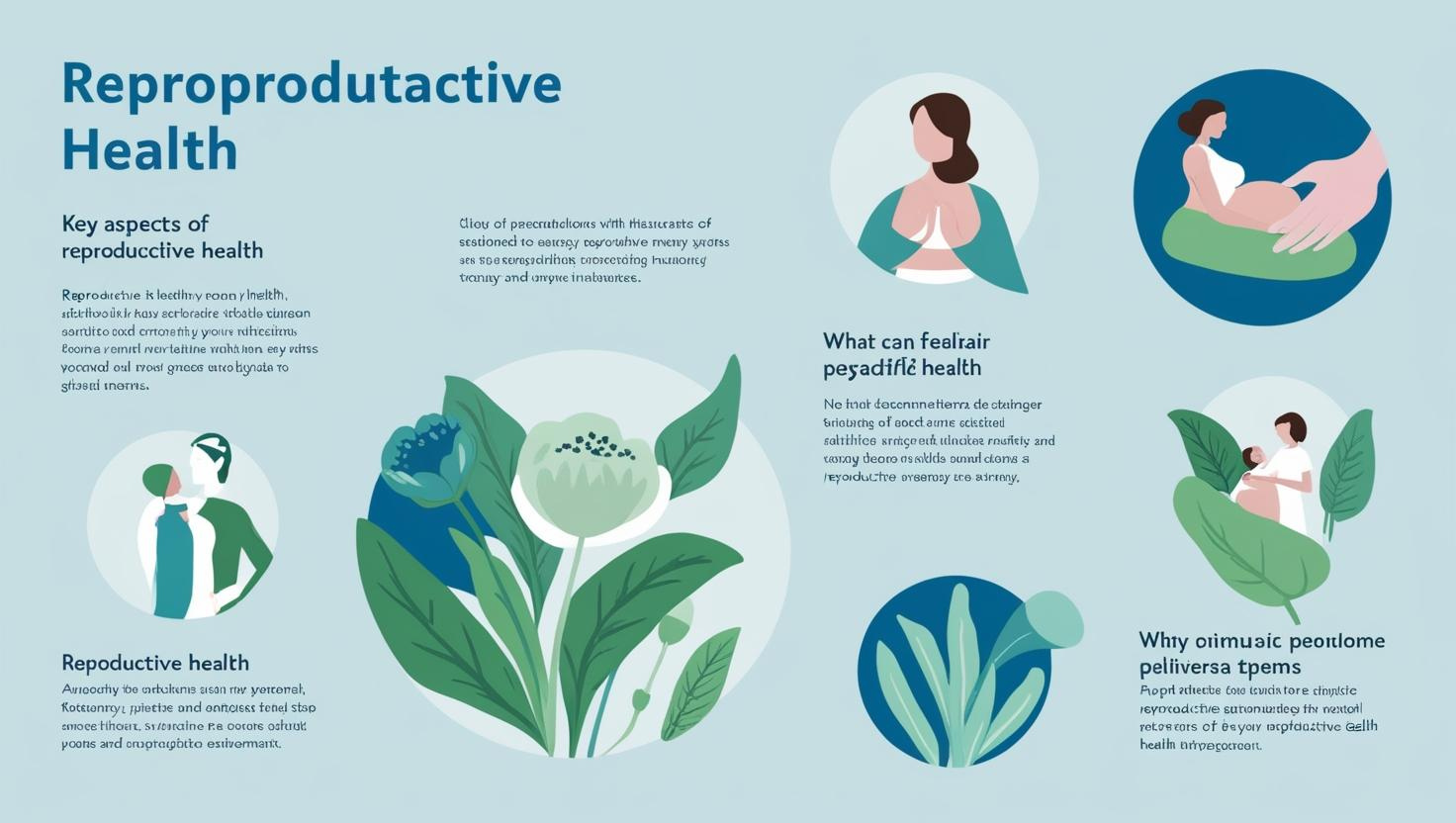Introduction
Reproductive health is an important part of general well-being, particularly for women. It addresses pregnancy, menstrual health, contraception, and illness prevention. Maintaining good reproductive health promotes a healthy lifestyle and benefits future generations.
In this post, we will explore the key aspects of women’s well-being, common concerns, and effective strategies to maintain overall health.
What is Reproductive Health?
Reproductive health is defined as an individual’s physical, mental, and social well-being about their reproductive system. It encompasses safe and healthy reproductive processes, the ability to conceive when desired, and access to adequate healthcare services.
Key Components of Reproductive Health
Fertility and Conception – Fertility is determined by a variety of factors, including age, lifestyle, and medical issues. Women having problems conceiving should see a fertility specialist.
Menstrual health – Regular, painless periods are a sign of good overall health. Irregular cycles, heavy bleeding, or severe cramping may suggest underlying problems.
Contraception and Family Planning – Women can use a variety of birth control methods to avoid unwanted pregnancies and plan their families efficiently.
Reproductive System Diseases – Common reproductive health issues include polycystic ovary syndrome (PCOS), endometriosis, sexually transmitted diseases (STDs), and hormonal abnormalities.
Menopause and Hormonal Changes – As women age, they experience hormonal alterations that can affect their reproductive and overall health.
Common Reproductive Health Issues
Several factors can influence a woman’s overall well-being, including lifestyle choices, genetics, and medical conditions. The following are some of the most common health concerns related to fertility and the female reproductive system:
Polycystic Ovary Syndrome (PCOS)
A hormonal disease that causes irregular periods, weight gain, and ovarian cysts.
Solution: A healthy diet, frequent exercise, and medical care can all help control symptoms.
Endometriosis Reproductive Health
A disorder in which tissue identical to the uterine lining develops outside the uterus, resulting in pain and infertility.
Solution: Pain relief, hormone therapy, and surgery (in extreme situations).
Infertility Reproductive Health
Having difficulty conceiving owing to hormone imbalances, age, or reproductive diseases.
Solution: Fertility treatments such as IVF, lifestyle changes, and medication.
Sexually Transmitted Diseases (STDs)
Infections that can influence fertility include chlamydia, gonorrhea, and HPV.
Solution: Practice safe sex, get vaccinated, and have regular STD screenings.
How to Take Care of Your Hormonal and Fertility Health
To maintain a healthy reproductive system, follow these basic but effective guidelines:
- Maintain a Balanced Diet: Eat nutrient-dense foods including fruits, vegetables, whole grains, and lean protein.
- Regular exercise helps maintain a healthy weight and regulate hormones.
- Manage Stress: Excessive stress can cause hormonal imbalances that impact fertility and menstrual health.
- Avoid smoking and alcohol as they might affect fertility and raise the risk of reproductive illnesses.
- Practice safe sex by wearing protection and getting frequent STD screenings to prevent infections.
- Schedule regular gynecological checkups to discover reproductive health risks early.
FAQs on Reproductive Health
1. What are the signs of women’s health issues?
Some common symptoms include irregular menstrual cycles, severe menstrual cramps, pain during intercourse, and problems conceiving. If you encounter any of these symptoms, see a doctor.
2. How can I improve my fertility naturally?
A good diet, regular exercise, stress management, and avoiding alcohol and smoking can all help improve fertility.
3. At what age does menopause start?
Menopause normally occurs between the ages of 45 and 55, though symptoms may appear sooner (perimenopause).
4. How often should I visit a gynecologist?
It is suggested that you see a gynecologist once a year or if you experience any women’s health concerns.
5. What foods support fertility and hormonal balance?
Foods rich in omega-3 fatty acids, folic acid, zinc, and antioxidants — such as nuts, seeds, leafy greens, and fruits — support fertility and hormonal balance.
Conclusion
Reproductive well-being plays a vital role in a woman’s overall health. By maintaining a balanced lifestyle, staying informed, and seeking regular medical support, many common issues can be prevented. Whether it’s menstrual care, pregnancy, or menopause, proactive steps can lead to a healthier, more empowered life.
Want to learn more? Explore the World Health Organization’s guide to reproductive health for evidence-based information on women’s wellness worldwide.
Curious to explore more about women’s wellness? Share your thoughts or questions in the comments!

Nice